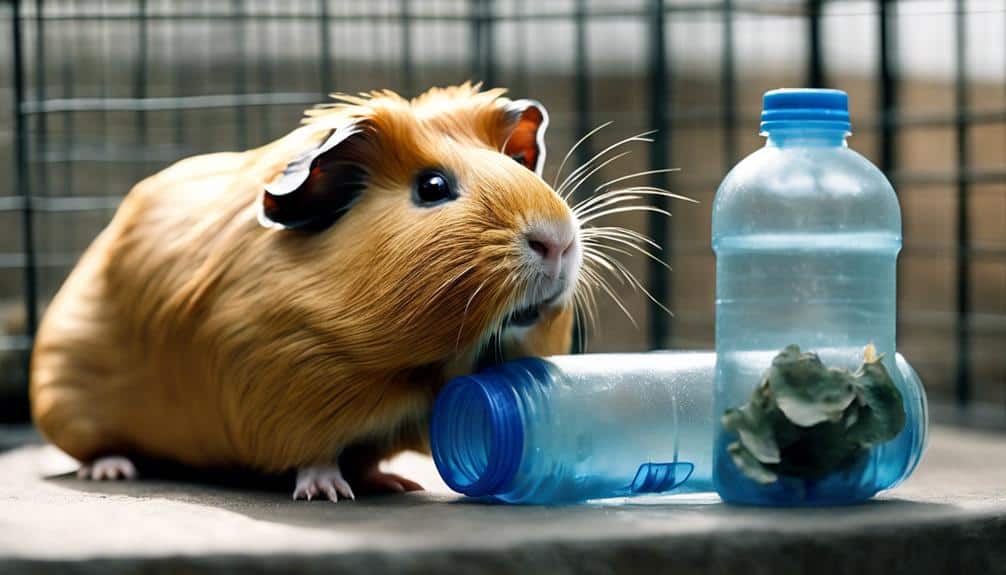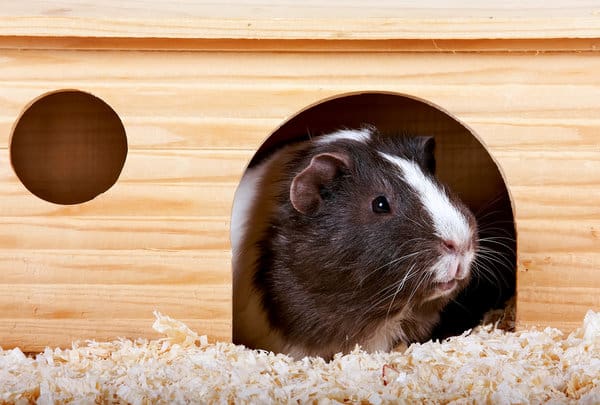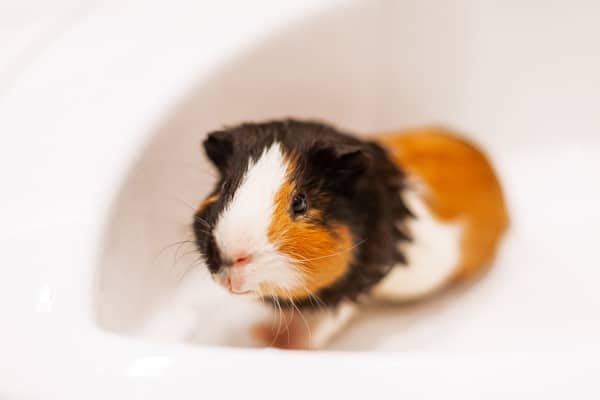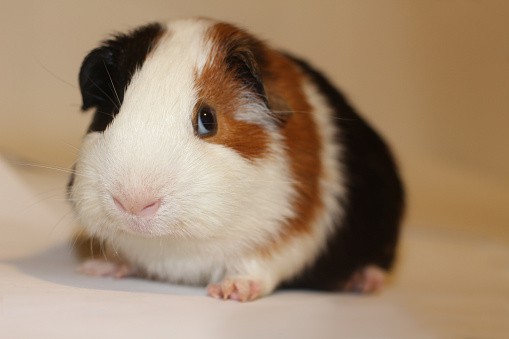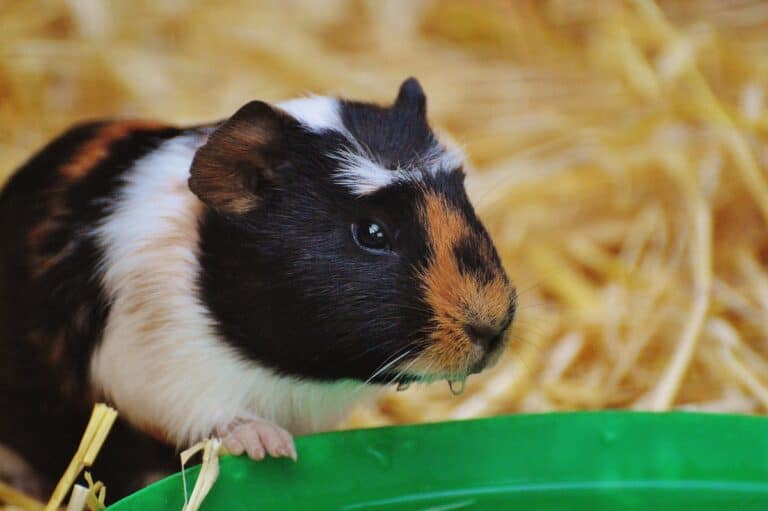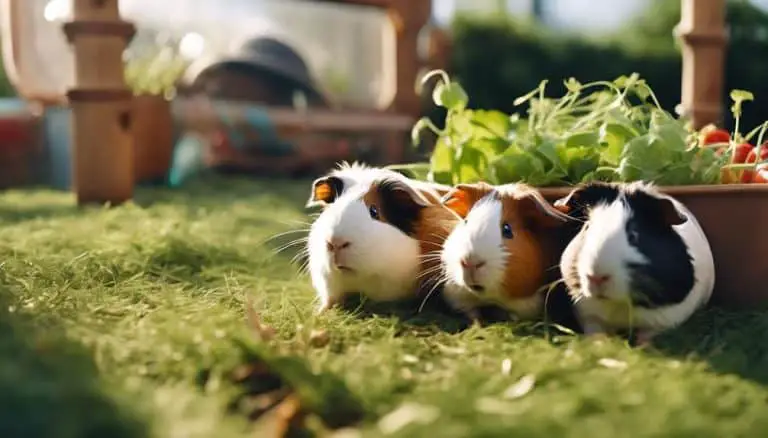How Long Can a Guinea Pig Go Without Water: A Comprehensive Guide
Ever wondered how long a guinea pig can survive without water? Well, let’s just say it’s not a feat they’d win any awards for.
But the real question is, how long can they truly hold out before things take a turn for the worse?
Let’s uncover the surprising truth behind this essential aspect of guinea pig care.
Signs of Dehydration in Guinea Pigs
When guinea pigs experience dehydration, they exhibit various signs that serve as important indicators of their hydration status. Signs of dehydration in guinea pigs include reduced appetite and changes in eating behavior. You might notice your guinea pig becoming lethargic or showing a reluctance to eat.
Monitoring their water intake is vital as decreased consumption can be a sign of dehydration. Additionally, changes in urine color, such as it becoming darker and smelling stronger, are key indicators. Dehydrated guinea pigs may also have dry, sticky saliva and produce small, hard feces.
It’s essential to act promptly if you observe any of these signs to prevent serious health issues. By being attentive to these symptoms, you can address dehydration early and safeguard your guinea pig’s well-being.
Consequences of Water Deprivation
Upon reaching a point of 12 hours without water, guinea pigs begin to exhibit signs of dehydration, signaling the onset of detrimental consequences for their health. Dehydration can manifest in various ways, such as dark urine and dry feces, indicating the body’s struggle to retain water.
Even before these visible signs appear, the health of a guinea pig is already being compromised. Lethargy, an unkempt appearance, thick saliva, and a loss of appetite are all warning signals that shouldn’t be ignored. These symptoms collectively underscore the urgent need for water intake in guinea pigs.
Ignoring these signs can lead to severe health consequences, impacting the overall well-being and longevity of these small animals. Hence, it’s essential to be vigilant in monitoring their water consumption to prevent the onset of dehydration and its associated negative effects.
Correcting Dehydration in Guinea Pigs
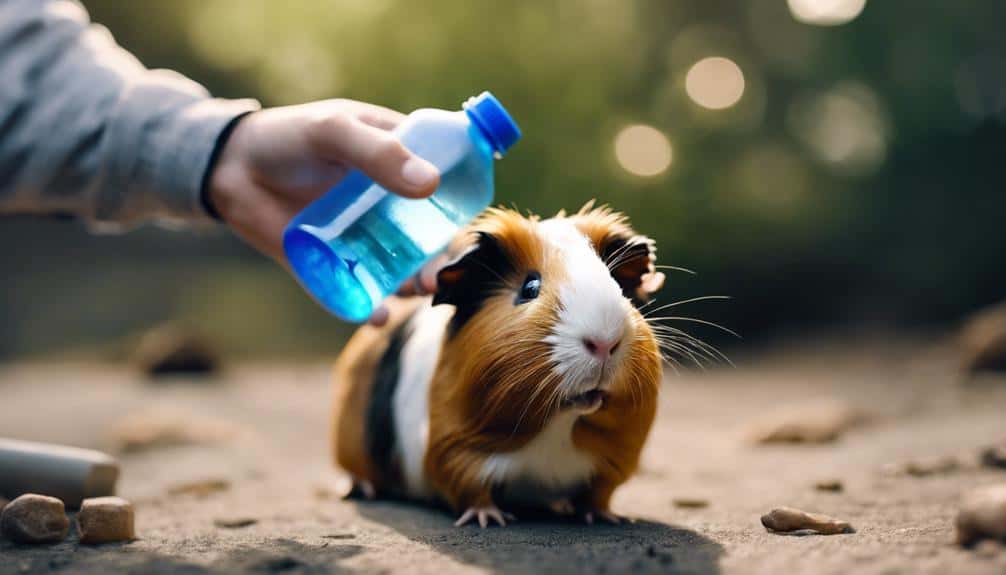
To address dehydration in guinea pigs, swift action must be taken to restore their water balance and prevent further health complications. When correcting dehydration in guinea pigs, immediate action is essential.
Here are some steps to help you address dehydration in your pet:
- Monitor water intake: Keep track of how much water your guinea pig is drinking to make sure they’re adequately hydrated.
- Offer water-rich vegetables: Providing vegetables with high water content like cucumber or lettuce can help increase their hydration levels.
- Observe signs of dehydration: Look out for symptoms such as dark urine and dry feces, as these indicate a lack of water in your guinea pig’s system.
- Provide critical care: In severe cases of dehydration, your guinea pig may require critical care from a veterinarian to rehydrate effectively.
- Act promptly: If you notice any signs of dehydration, take immediate action to correct the issue and prevent further health complications.
Preventing Dehydration in Your Pet
Proactively monitoring your guinea pig’s water intake is essential for preventing dehydration and maintaining their overall health. Guinea pigs can start showing signs of dehydration after just 12 hours without water, which can lead to serious health consequences even before visible signs appear. It is critical to pay close attention to your pet’s water consumption to make sure they stay hydrated and healthy.
To help you track your guinea pig’s water intake effectively, here is a helpful table:
| Signs of Dehydration | Description |
|---|---|
| Lethargy | Lack of energy or activity |
| Unkempt appearance | Messy or disheveled fur |
| Thick saliva | Viscous or sticky saliva |
Hydration Tips for Guinea Pig Owners
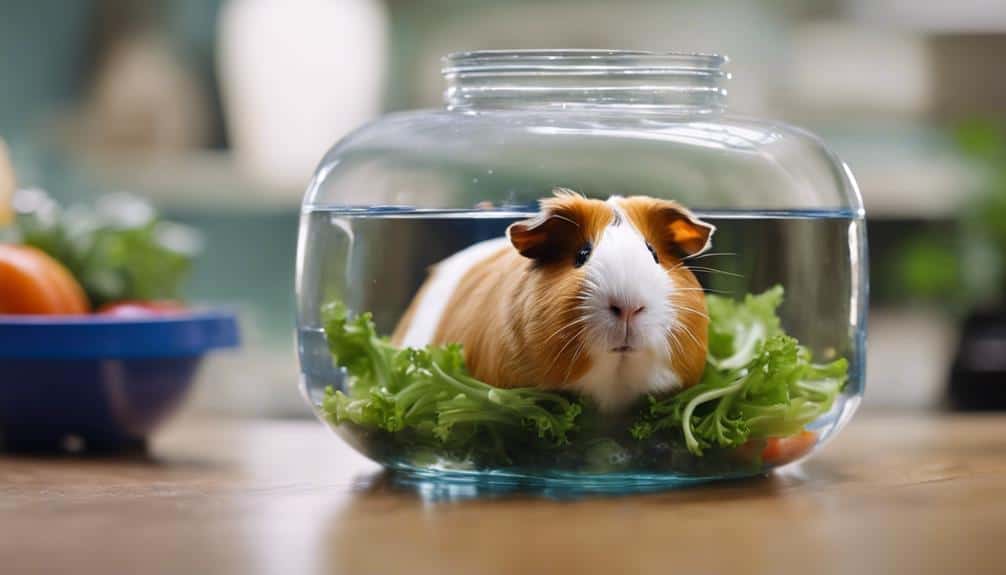
Maintaining ideal hydration for your guinea pig is crucial for their overall well-being and health. To guarantee your furry friend stays hydrated, consider the following tips:
- Provide continuous access to water by using non-drip water bottles attached to the cage.
- Incorporate high water content fruits and vegetables into their diet to supplement their hydration needs.
- Monitor changes in feces, urine color, appetite, and behavior to promptly identify any signs of dehydration in guinea pigs.
- Pregnant or lactating guinea pigs may require increased water intake to support their specific needs.
- Regularly check the water intake of your guinea pig to guarantee they’re meeting the daily requirement of approximately 80-100ml of water.
Conclusion
In summary, monitoring water intake and recognizing signs of dehydration are essential for guinea pig owners. By providing timely hydration and addressing any issues promptly, we can guarantee the health and well-being of our beloved pets.
Remember, prevention is key in keeping guinea pigs happy and healthy. Stay vigilant, stay hydrated, and keep your furry friends in tip-top shape.

